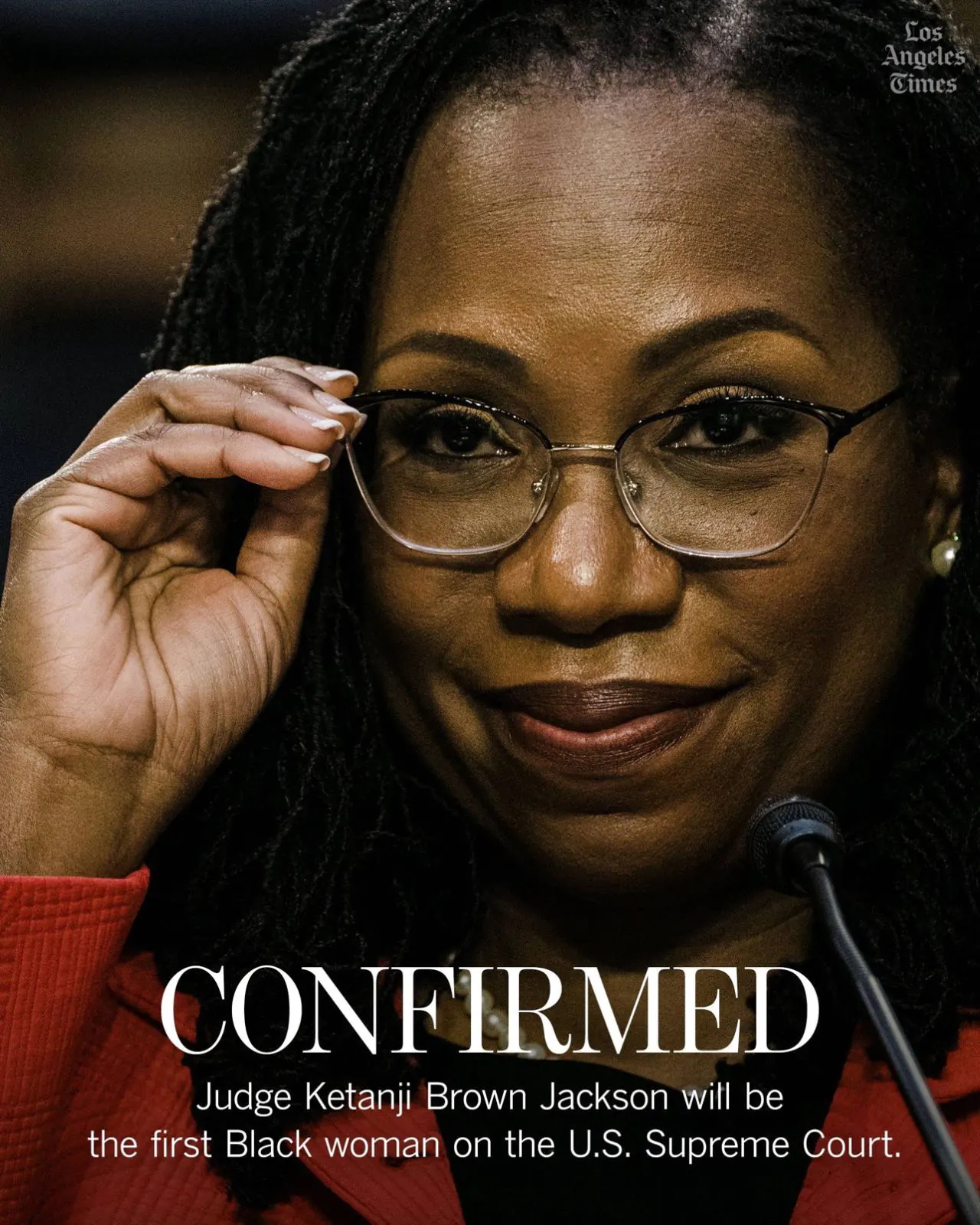Judge Ketangi Brown Jackson will be the first Black woman on the U.S. Supreme Court
Ketanji Brown Jackson was confirmed to the US Supreme Court today, making her the first Black female Supreme Court Justice in US history. Drawing on extensive experience with matters of criminal justice and sentencing disparities—in addition to the fact that she’s the only former public defender ever appointed to the highest court—Jackson will bring a new perspective to the bench. Just as importantly, her appointment makes good on President Joe Biden’s promise to put a Black woman on the Supreme Court, and in doing so takes an important step toward a more equal representation in the US judicial system.
Of course, not everyone in Washington was supportive of Jackson’s nomination. Only three Republicans crossed the aisle to vote to confirm her—Mitt Romney, Susan Collins, and Lisa Murkowski, all of whom have been open to bipartisan cooperation over the past few years. The rest of the Republican party spent the past month challenging Jackson’s nomination througha number of trumped-up and largely misleading accusations, many of which appeared to be racially motivated.
Systemic and overt racism of this nature are nothing new to Jackson. Indeed, her appointment to the Supreme Court is directly aimed at mitigating the effects of systemic racism in the US judicial system. Black and Hispanic defendants have historically received harsher sentences than their White counterparts, and a number of US laws (particularly those related to drug possession) have now been shown to be directly aimed at incarcerating minorities. Over the past few years, inequities in the justice sphere have been one of the most pressing social issues in the US, with months of active protest and unrest following the unjustified killings of numerous Blacks by police officers. In this explosive environment, Jackson’s appointment is all the more important, as it is essential that the Supreme Court include both gender and racial diversity as fraught issues are debated and ruled upon. At the same time, her appointment also serves as inspiration for young Black women and girls who may have previously despaired that the system was rigged against them, and that aspiring to serve on the country’s highest court was unrealistic at best.
It is clear that we still have a long way to go before we achieve racial equality, both in the justice system and in society in general. That being said, today’s confirmation of Ketanji Brown Jackson is a major step in the right direction and gives us hope that one day we will indeed enjoy a more inclusive, equitable society.

